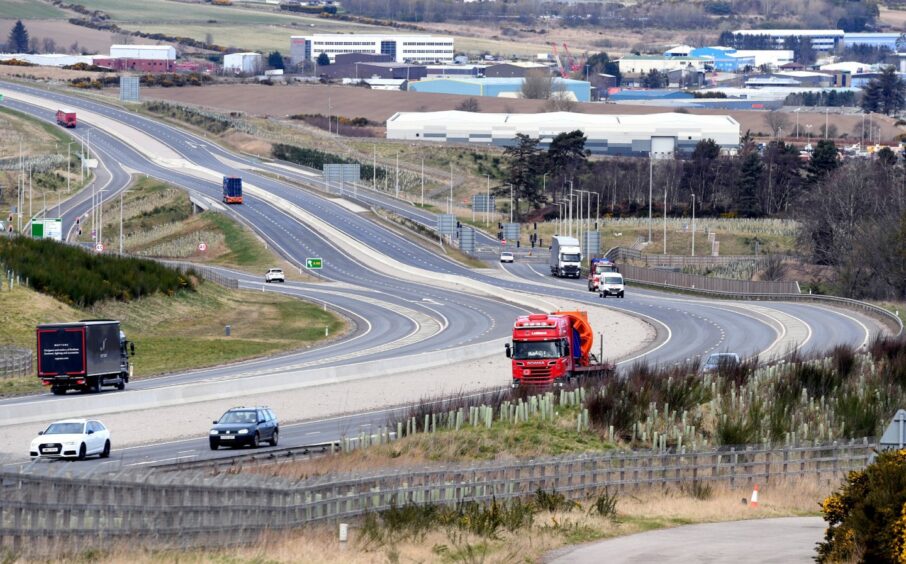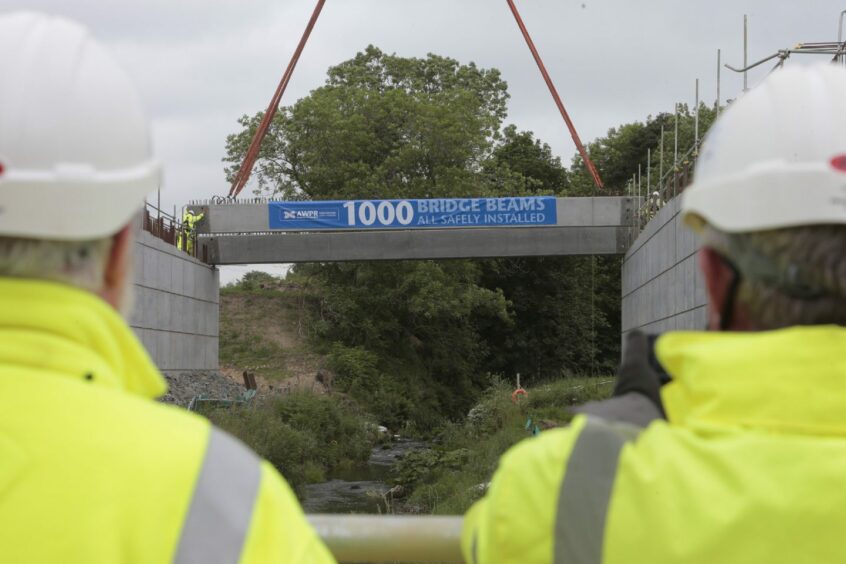Global accountancy giant PwC and one of its employees have been fined a total of £3.1 million following a probe sparked by the £1.5 billion-plus Aberdeen bypass project.
PwC was found to have “missed errors” in its auditing of the accounts of construction firm Galliford Try, one of the partners that built the new road.
The Financial Reporting Council (FRC), which regulates auditors, accountants and actuaries, said PwC and audit engagement partner Jonathan Hook did not properly challenge or corroborate what bosses at Galliford Try told them.
PwC and Mr Hook also failed to gather key evidence on some long-term contracts.
Rigorous auditing of long-term contract accounting is particularly important in the audit of construction companies, where many contracts are spread over a number of years.”
Claudia Mortimore, deputy executive counsel, FRC.
Galliford Try, trading as Morrison Construction in Scotland, was previously forced to restate its accounts after overstating its assets by tens of millions of pounds.
Errors in how the company recognised revenue on certain construction contracts came to light in 2018.
The company had wrongly included an £80m claim against the customer, Transport Scotland, for the Aberdeen Western Peripheral Route (AWPR) project.
We are sorry that aspects of our work were not of the required standard.”
PwC.
Announcing the result of its probe into PwC, FRC fined the professional services firm and Mr Hook a further £2.1m for their audit of another construction giant, Kier Group.
FRC published a long list of reasons for the fines, as it also revealed the severe reprimands they came with.
The auditors missed errors in Galliford Try’s income and cash flow statements in the 2017 financial report, FRC said.
This meant there were mistakes in the company’s 2017 financial statements.
FRC deputy executive counsel Claudia Mortimore said: “Rigorous auditing of long-term contract accounting is particularly important in the audit of construction companies, where many contracts are spread over a number of years.
“Auditors must not only ensure they obtain sufficient appropriate audit evidence to support the accounting of the contracts, but also apply sufficient professional scepticism.
“This is vital so that investors can have confidence in the financial statements.”
The authority said PwC and Mr Hook had shown a “good” level of co-operation with its investigation into Kier and “excellent” co-operation on the Galliford Try probe.
PwC said: “We are sorry that aspects of our work were not of the required standard.
“Since these audits were completed we have invested heavily in an ongoing programme to strengthen audit quality, which has included measures to support the audit of long-term contracts.
“We have seen the positive impact of the actions we’ve taken through improved inspection results and other quality indicators over recent years, and we remain committed to the delivery of consistently high quality audits.”
Galliford Try was part of the AWPR road-building consortium and one of two firms, alongside Balfour Beatty, left shouldering hefty extra costs after a third partner, Carillion, collapsed, while the Transport Scotland project also suffered major delays.
The official price tag for the AWPR came in at £745m, which included a contract worth about £530m to development consortium Aberdeen Roads.
But Galliford Try and Balfour Beatty later secured extra cash from the Scottish Government to compensate for their hefty losses on the project and this, together with operation and maintenance costs over a 30-year period, suggest the true cost has soared to beyond £1.5bn.




Conversation